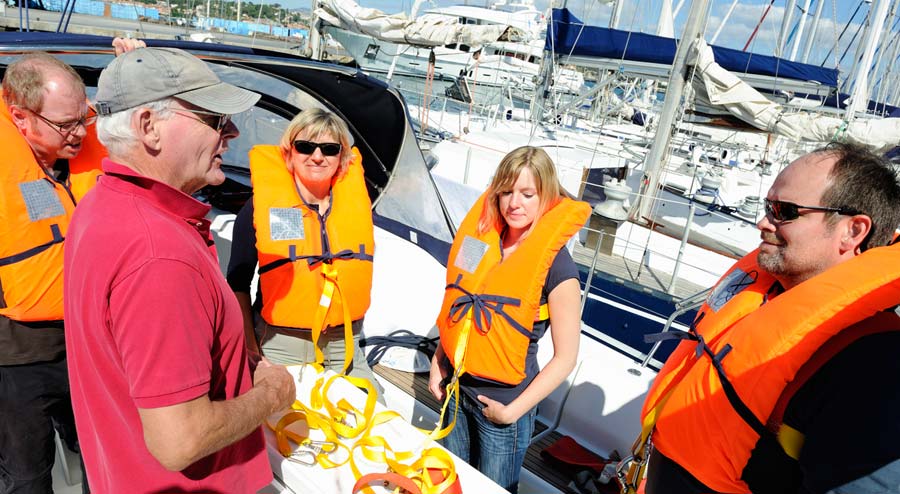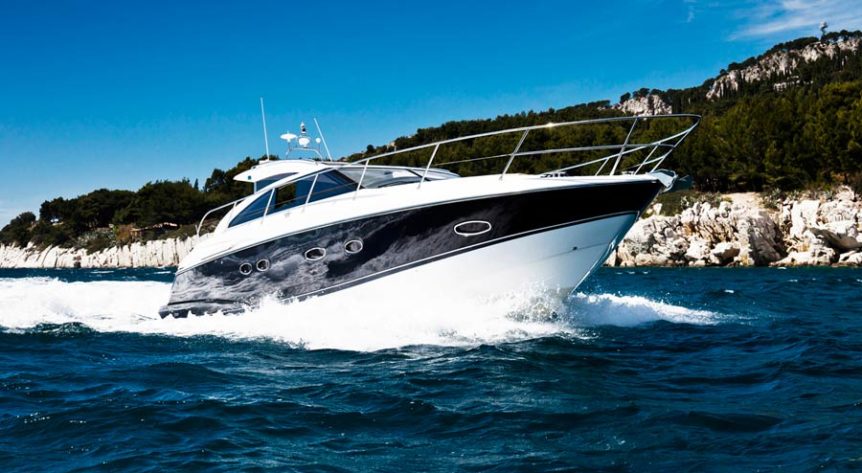The beauty of the Atlantic Ocean can’t be compared to any other sea or ocean. The breeze in your face and the salt in the air is tempting whether you’re sailing or just following the magnificent waves. Before you take off in your boat, however, you should know the laws of the sea.
Texas, just like any state bordering an ocean, abides by maritime law but they also have their own state boating laws. To stay out of trouble and to keep yourself safe, you’re going to want to study the specific laws Texas has set for boating off their coast.
So, we’re going to learn all about the main Texas boating laws in this article so we can be ready before we hit the high seas.
Boating Laws in the State of Texas
Every state has its own laws for what happens when underway and on your boat or most other types of water vessels. Texas has laws of their own, outside of maritime federal law.
Boat Registration and Titles
You’re required to register almost all water vessels with the Texas Parks and Wildlife Department (TPWD). When you go to register your boat, you need to have the title in hand to show ownership.
Water vessels that are required to be registered include, but aren’t limited to:
- All motorized boats
- Any sailboat that’s 14 feet in length
- Any sailboat with an auxiliary engine
- Trailers need to be registered through your county tax office
Once your vessel is registered, you receive a registration sticker. This sticker needs to be placed three inches toward the rear of the boat.
The registration number needs to also be painted near the bow of the boat. The painted numbers have to be at least three inches in height and readable.
Operator Restrictions
In order to operate a boat in Texas waters, you must be 14 or older and, in some cases, you’re required to take the proper safety education classes for a boater identification card.
The vessels include:
- Powerboat powered by a motor of 15HP or more
- A personal watercraft (PWC) or any watercraft you sit on instead of in
- Windblown vessels such as a sailboat that’s over 14 feet in length
For anyone who’s 13 years old or under, you can only operate one of these vessels if you’re accompanied by someone 18 or older on the boat.
- The adult supervising a minor must have passed all safety education classes.
- The minor must have also passed safety education classes before operating any of the above water vessels.
Boater Safety Education Courses

Boater Education courses are required for anyone aged 16 or younger who plans on operating a water vessel. There are several informed websites that offer you studying assistance and are legally TPWD approved to take you through the 6-hour safety course.
This safety course will cover several subjects including:
- Boats, boat uses, and the mechanics of boats
- Boating safety to prevent accidents or misfortunes
- Operating a boat
- State laws for Texas which includes the Texas Water Safety Act and Boating While Intoxicated laws (BWI)
- Department approved methods for cleaning a boat, boat motor, or boat trailers
Once you complete the TPWD safety course, you have to take an exam that goes over everything you learned.
You will then receive your boater identification card, which is a lot like your driver’s license. This ID won’t have an expiration date to renew it.
Personal Flotation Devices
Personal flotation devices (PFDs) are required on every water vessel. There must be one life jacket or life vest for every person that’s on board the boat or water vessel.
You never know when a PFD comes in handy. They can save your life if something unexpected happens.
These PFDs are required to be:
- Approved by the coast guard
- In perfect condition and not worn down or have any holes
- Easy accessibility in case you need to use one
- Fits perfectly
Any child who’s aged 12 and under that’s on a water vessel that’s under 26 feet in length is required to wear a PFD when the boat is underway or not parked.
Boating Under the Influence or Boating While Intoxicated
It’s illegal to operate any boat under the influence of alcohol or drugs by federal or state law.
To be considered intoxicated with alcohol, you need to have a blood alcohol content (BAC) of .08 or higher.
There are severe consequences if you’re found guilty of a BWI charge and it’s considered a Class B misdemeanor offense.
The usual consequences of boating under the influence can include:
- 1st Offense: You can receive a hefty fine of up to $2,000 as well as spend up to 72 hours in jail.
- 2nd Offense: You can receive a hefty fine of up to $4,000 plus up to a year in jail.
- 3rd Offense: You can receive a hefty fine of up to $10,000 and 2–10 years in prison.
If you refuse to take a BAC test for authority, you will have your driver’s license suspended for up to 180 days. That’s just for your 1st offense.
There are no fine or any legal consequences for an open container on your boat. However, an open container on a boat can lead to suspicion of the boat operator being under the influence of alcohol.
Boating Accidents
Boat accidents happen more than you’d think and the consequences can be serious. Any boating accident must be reported to the TPWD within 30 days if:
- There was a death as the result of the accident within the 1st 48 hours
- There was an injury that required professional medical treatment
- There was damage due to the accident that costs $2,000 or more
Conclusion
These are only a few of Texas’ basic state laws that involve water vessels. These are laws you should know and abide by before you head out to sea. You can find the entire Texas Water Safety Act here.
If you are involved in a boating accident, maritime laws are far more complicated than laws that govern accidents on land. Liability limits are far higher which means that you should immediately seek the assistance of a skilled and experienced boat accident lawyer.
You can find a list of Texas lawyers who specialize in boat accidents in our Texas maritime lawyer directory.
